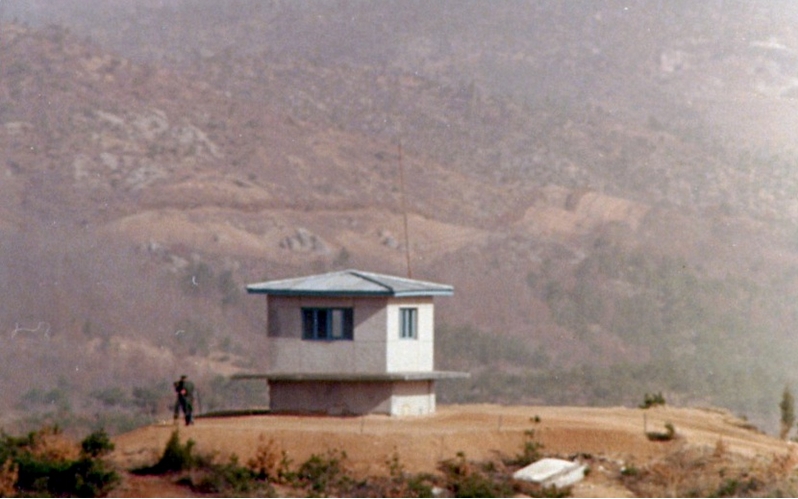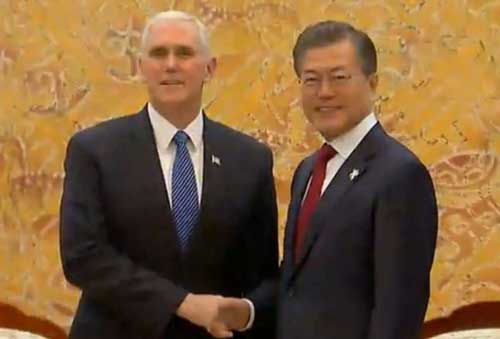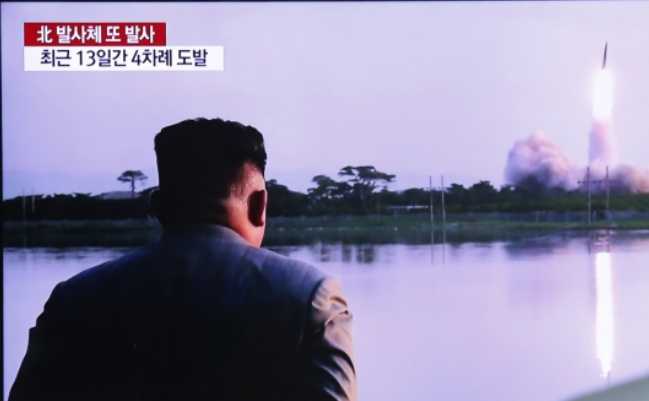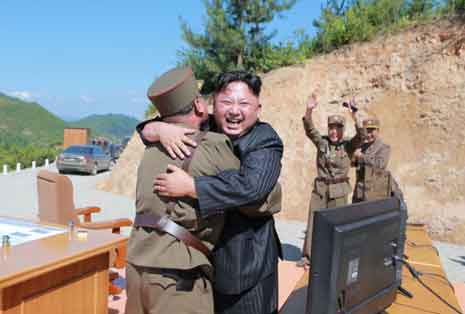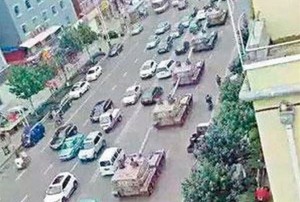
SEOUL—South Korea and North Korea reached a deal early Tuesday to defuse the latest confrontation on the Korean peninsula after three days of tense negotiations.
There was no immediate report on details of the accord, but the office of South Korean President Park Geun-hye said it would make an announcement shortly.
Earlier Monday, President Park demanded an apology from its communist neighbor for maiming two South Korean border guards with land mines earlier this month. Seoul said it would not turn off its propaganda loudspeakers at the border between the two Koreas without the apology. North Korea has denied responsibility for the incident.
“We need a clear apology and measures to prevent a recurrence of these provocations and tense situation. Otherwise, this government will take the appropriate steps and continue its loudspeaker broadcasts,” said Park at a meeting of her top aides.
The emergency talks at the Panmunjom truce village on the inter-Korean border began Saturday shortly after a deadline issued by Pyongyang expired for Seoul to halt cross-border audio broadcasts into the North or face military attacks.
The negotiations continued for three days without any sign of progress. The two sides were each represented by a high-ranking military official and diplomat.
U.N. Secretary-General Ban Ki-moon, a former South Korean foreign minister, had urged both sides to “redouble” their efforts to reach a compromise.
While officials had not publicly commented other than to say the negotiations are “tense,” neither side seemed willing to compromise on its public demands made to end the current crisis.
After accusing Pyongyang of planting landmines on the South’s side of the border area’s demilitarized zone (DMZ) that wounded the two soldiers, Seoul recently resumed anti-Pyongyang cross-border broadcasts in the border area for the first time in more than 10 years.
The two Koreas last week reportedly exchanged artillery fire in the DMZ near a loudspeaker tower.
The North denied any involvement in either incident and demanded an end to the cross-boarder broadcasts, calling them psychological warfare.
War readiness
Last week, North Korean leader Kim Jong Un declared a “quasi state of war.” Both sides have since been deploying troops and armaments to increase military readiness and prepare for possible confrontation.
South Korea has been reporting unusual troop and submarine movement in the North. Pyongyang has moved 70 percent of its submarines away from their bases and the vessels are now undetectable, according to South Korea’s Defense Ministry. A ministry spokesman on Sunday characterized the movement as “unprecedented.”
The North has also doubled its frontline artillery strength at the border with the South, according to South Korea.
Defense Ministry spokesman Kim Min-seok Monday indicated that South Korea and the United States might be considering bringing in more U.S. military assets that are stationed in the region.
“South Korea and the United States are continuously paying attention to the crisis situation on the Korean peninsula and flexibly reviewing the timing of the deployment of strategic U.S. strategic military assets,” he said.
The United States has over 28,000 soldiers based in South Korea and is currently conducting annual joint military exercises with the South.
North Korea condemns these drills as rehearsals for invasion.
Saturday, eight South Korean and American fighter jets conducted simulated bombing runs Saturday over South Korean territory as a “show of force” against Pyongyang’s threats.
Dangerous game
The emergency meeting that began Saturday was the first high-level inter-Korean dialogue since February of 2014.
An emergency meeting in response to a forced crisis underlines a pattern of diplomatic behavior employed by past North Korean leaders Kim Il Sung and his son, Kim Jong Il, who often used provocations and threats to try to extract concessions and aid.
During this crisis there has been concern that the young and inexperienced Kim Jong Un would not have the diplomatic skills to engage in such a game of brinksmanship, or a sufficiently firm hold on power to be able to compromise when necessary.
Seoul has also been less willing to offer concessions to Pyongyang under President Park, and its military has been under orders to respond with force, ever since a North Korean artillery attack in 2010 caught the South by surprise and killed four people.
South Korea’s Defense Ministry said its policy is to respond proportionally to any North Korean provocation so as to demonstrate resolve and deterrence without escalating the conflict.
Youmi Kim in Seoul contributed to this report.
Source :VOA
[content id=”18651″]


